Students, Faculty Win Conference Awards
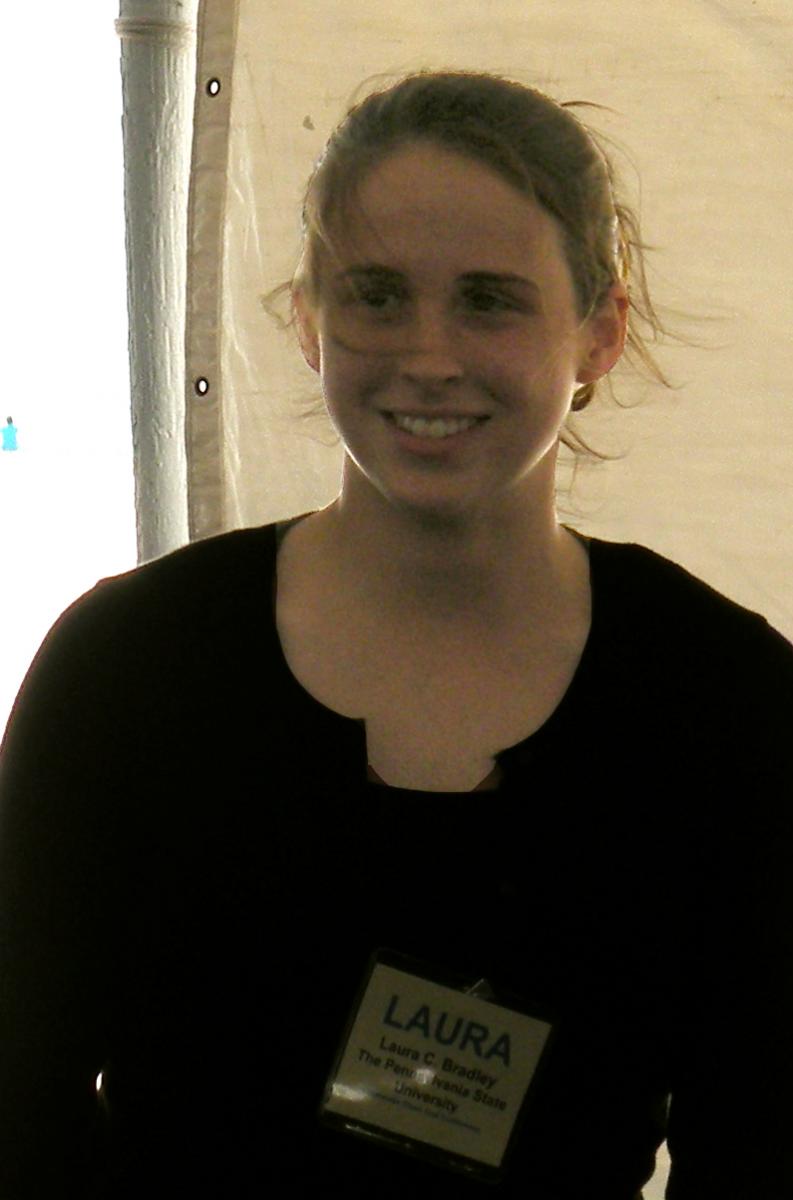 Laura Bradley Takes Best Paper at International Conference
Laura Bradley Takes Best Paper at International Conference
Laura C. Bradley, an undergraduate student in Chemical Engineering working at the EMS Energy Institute, received a Best Student Paper Award at the 2009 Clearwater Clean Coal Conference for her paper, “ The Effect of Fuel Composition on Pyrolysis Kinetics.”
She received the award during the 34th International Technical Conference on Clean Coal and Fuel Systems held from May 31 to June 4, 2009. The Best Student Paper Award Committee evaluated the students on the manuscript they submitted and the presentation of the material during conference technical sessions.
Nine students participated in the award representing Penn State, University of Stuggart, The Ohio State University, Massachusetts Institute of Technology, Illinois Institute of Technology, and University of Utah. Laura, who recently completed her sophomore year, was the sole undergraduate student in the competition. Two students were awarded Best Paper and Laura shared the honor with a Ph.D. student from the University of Utah.
Laura presented work she performed as an Independent Study during Fall 2008 that was funded by the Foster Wheeler, NA. Her advisor for the Independent Study and co-author on the manuscript was Dr. Sharon Falcone Miller.
ACS National Meeting Recognition
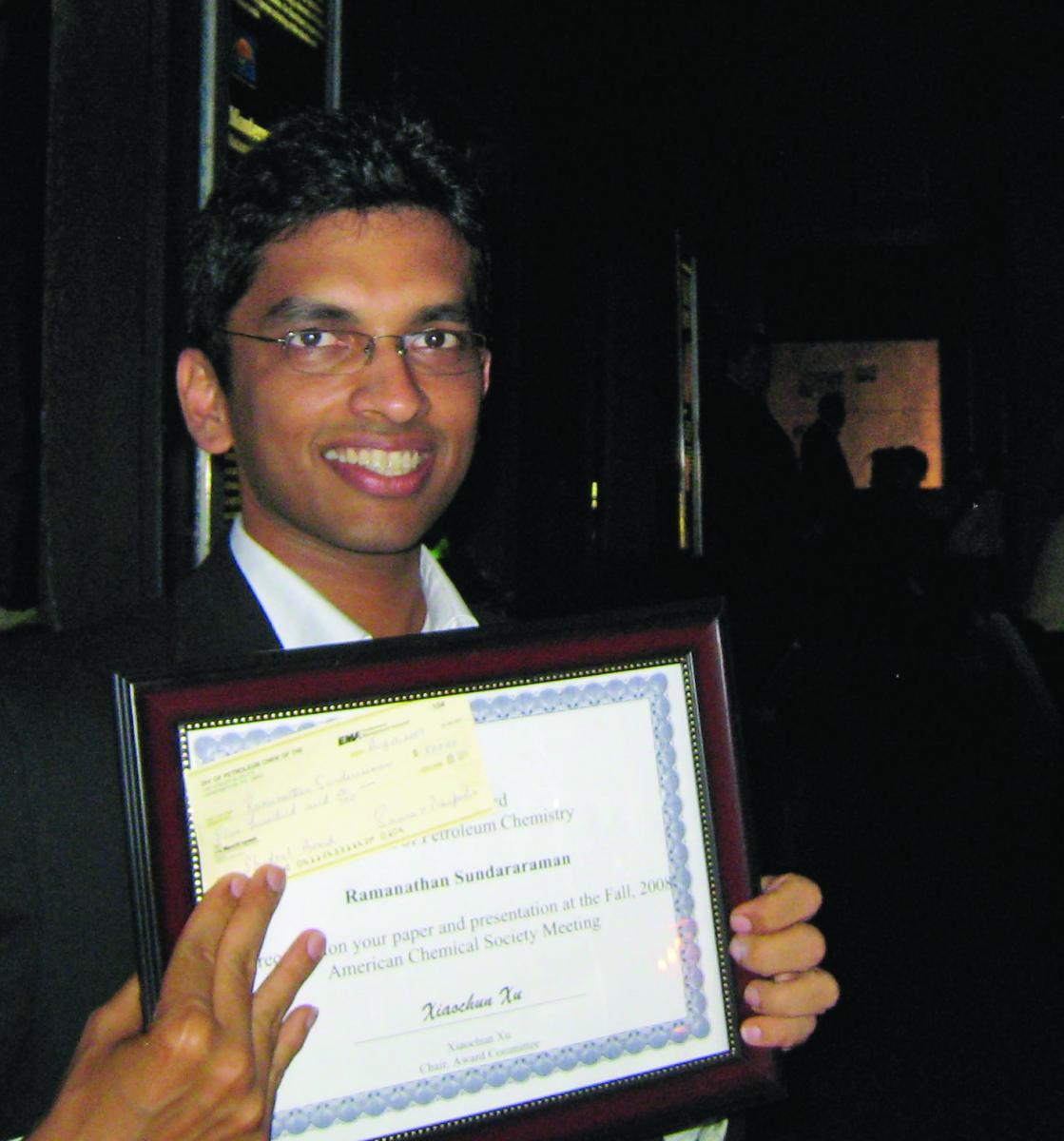 Ramanathan Sundararaman, a Graduate Student in Energy and Mineral Engineering, received the American Chemical Society (ACS) Petroleum Chemistry Division Student Award for Best Paper during the 238th National Meeting & Exposition of the ACS in August 2009. Only one paper is selected at each national meeting for this award. The award was based on his paper presented at the Fall 2008 ACS National Meeting, “Partial Oxidation Using Air for In Situ Peroxide Generation in Diesel Fuel for Selective Oxidation of Refractory Sulfur Compounds.” Co-authors on the paper were Dr. Chunshan Song and Dr. Xiaoliang Ma.
Ramanathan Sundararaman, a Graduate Student in Energy and Mineral Engineering, received the American Chemical Society (ACS) Petroleum Chemistry Division Student Award for Best Paper during the 238th National Meeting & Exposition of the ACS in August 2009. Only one paper is selected at each national meeting for this award. The award was based on his paper presented at the Fall 2008 ACS National Meeting, “Partial Oxidation Using Air for In Situ Peroxide Generation in Diesel Fuel for Selective Oxidation of Refractory Sulfur Compounds.” Co-authors on the paper were Dr. Chunshan Song and Dr. Xiaoliang Ma.
Currently, Ramanathan is working with Dr. Song in the EMS Energy Institute. His Ph.D. thesis research topic is novel oxidation desulfurization using air for ultra clean fuels.
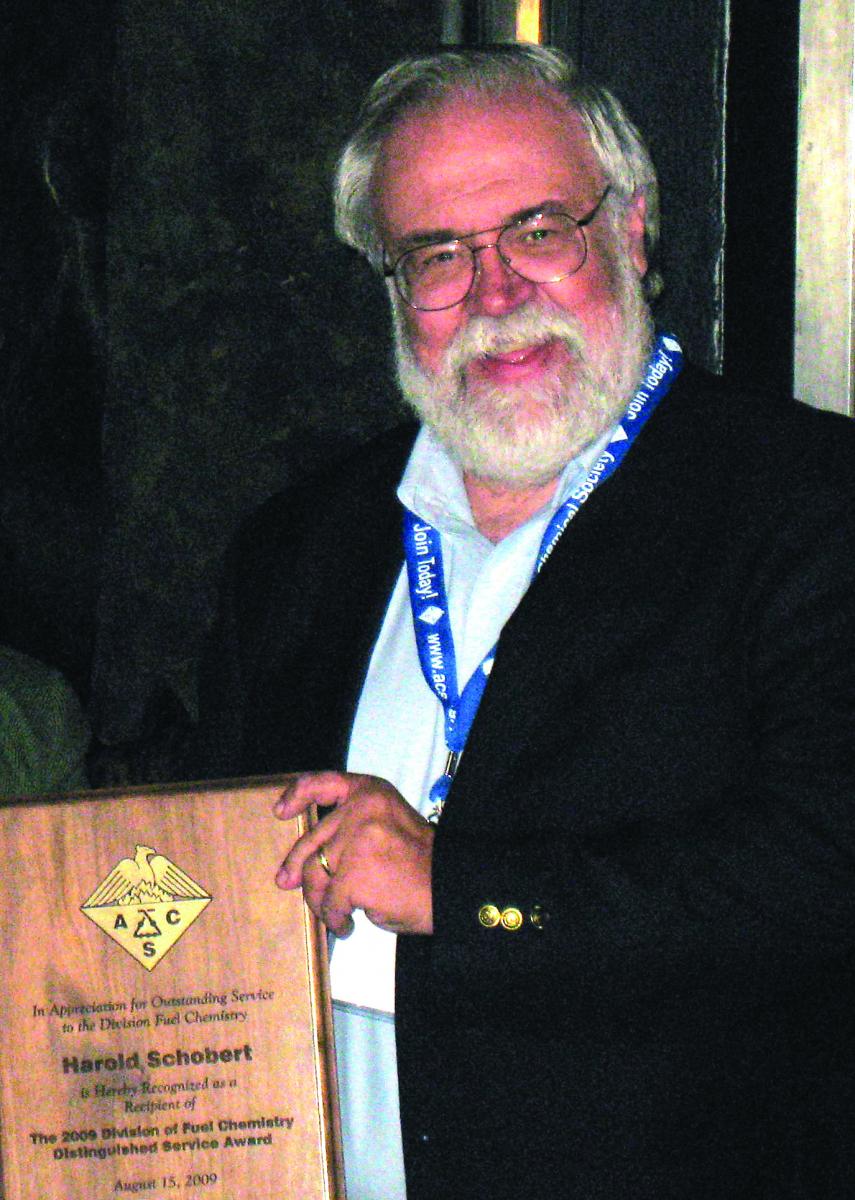 Dr. Harold Schobert, professor of fuel science, was also recognized during the 2009 meeting. Dr. Schobert received a Distinguished Service Award in “appreciation of his outstanding service to the division of fuel chemistry.” is award, limited to members of ten years or more, is presented to an individual who has had “a significant and continued impact on the advancement of fuel chemistry through research, teaching and/or service.”
Dr. Harold Schobert, professor of fuel science, was also recognized during the 2009 meeting. Dr. Schobert received a Distinguished Service Award in “appreciation of his outstanding service to the division of fuel chemistry.” is award, limited to members of ten years or more, is presented to an individual who has had “a significant and continued impact on the advancement of fuel chemistry through research, teaching and/or service.”
Dr. Schobert has held several positions on the executive committee for the ACS Division of Fuel Chemistry. Currently, he is the director of long-range planning.
Gareth Mitchell, Contributing Author for Award-Winning Book
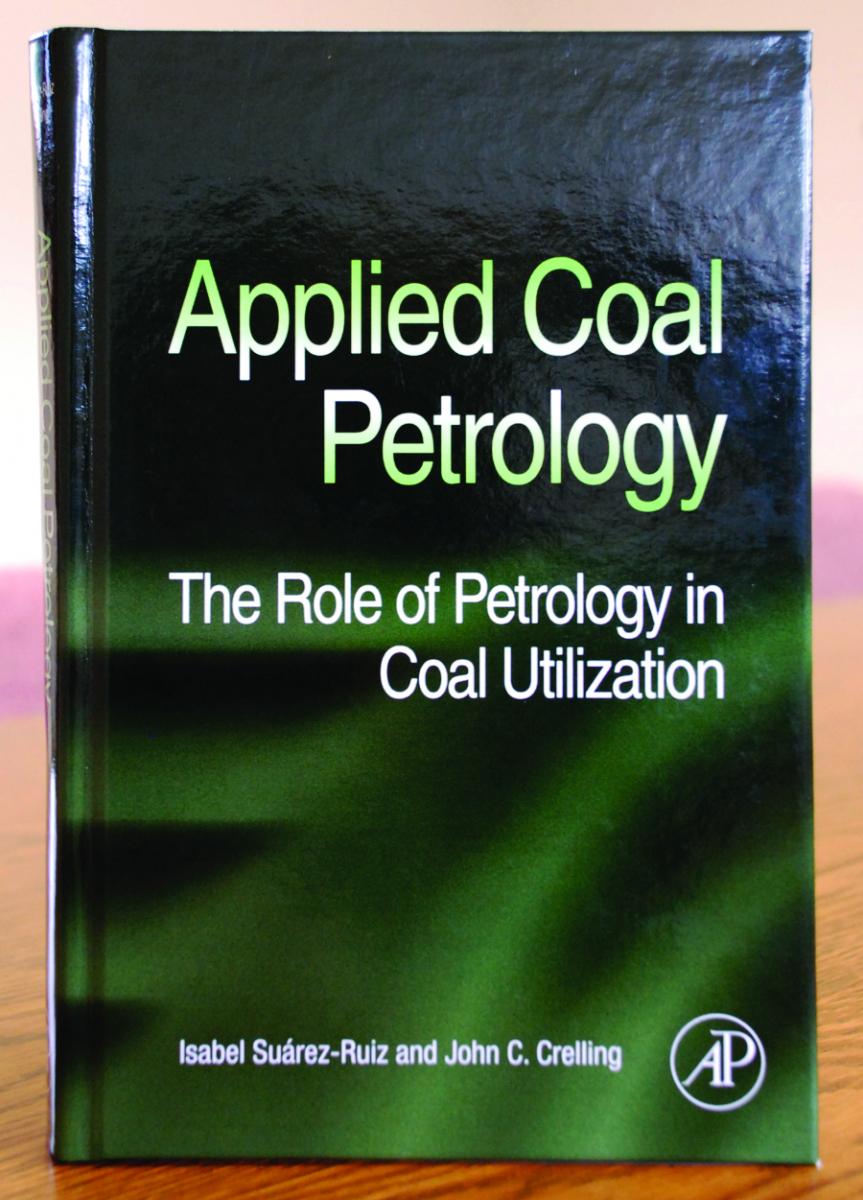 Gareth Mitchell, research associate in the EMS Energy Institute, was a contributing author for Applied Coal Petrology: The Role of Petrology in Coal Utilization*, which recently received the 2009 Ralph Gray Award for Outstanding Book in Coal and Organic Petrology. Mitchell, who is also the director of the Coal & Organic Petrology Laboratories at the Institute, wrote the chapter on direct coal liquefaction (chapter 6).
Gareth Mitchell, research associate in the EMS Energy Institute, was a contributing author for Applied Coal Petrology: The Role of Petrology in Coal Utilization*, which recently received the 2009 Ralph Gray Award for Outstanding Book in Coal and Organic Petrology. Mitchell, who is also the director of the Coal & Organic Petrology Laboratories at the Institute, wrote the chapter on direct coal liquefaction (chapter 6).
The Ralph Gray Award, given by e Society for Organic Petrology (TSOP), was developed in memory of TSOP founding member, Ralph J. Gray, to recognize excellence in coal and organic petrology publications. While the award was primarily established for refereed papers, outstanding publications in non-refereed venues can be considered and TSOP felt this book warranted recognition.
Applied Coal Petrology, edited by Isabel Suárez-Ruiz and John C. Crelling, is a valuable reference book for coal producers, marketers, industry professionals, researchers, and teachers. It explains the applications of coal petrology, a branch of geology that deals with understanding the origin, occurrence, structure, and history of coal, and petrology’s significance in the coal industry and other coal-related areas. According to the book's back cover, “Coal petrology, when employed eff ectively, is one of the most important tools we have for the management of coal as a producer of energy.” is book will provide readers with “information and solutions to the day-to-day issues of coal management and gives the reader insight into long-term planning.”
Other contributing authors include: Joan S. Esterle, Robert B. Finkelman, Stephen F. Greb, Jack C. Pashin, Nicola J. Wagner, Colin R. Ward, M. Coertzen, R.H. Matjie, J.C. van Dyk.
Demian Saffer Receives Research Award
Demian Saffer, associate professor, Geosciences, recently received the 2009 Friedrich Wilhelm Bessel Research Award from the Humboldt Foundation. This award is presented annually to about twenty internationally renowned scientists and scholars. These scholars, from across all disciplines, are recognized for their outstanding accomplishments in research to date and their exceptional promise for the future.
In addition to receiving recognition, award recipients are invited to spend a period of up to one year cooperating on a long-term research project with specialist colleagues at a research institution in Germany. Dr. Saffer’s collaboration will be with Dr. Achim Kopf at the University of Bremen. Dr. Saffer will be working closely with Dr. Kopf on several projects focused on the hydrologic and mechanical behavior of tectonic plate boundary fault systems. These fault systems give rise to many of the planet’s largest earthquakes. e projects will include the development of long-term borehole observatories to monitor processes associated with the earthquake cycle off shore Japan and experimental laboratory studies to measure rock properties within and surrounding the major fault systems.
The Friedrich Wilhelm Bessel Award is given to researchers who have completed their doctorates less than twelve years ago and who are expected to continue producing cutting-edge achievements that will have a significant influence on their discipline beyond their immediate field of work. e Federal Ministry for Education and Research funds the award.
Chunshan Song Named Distinguished Professor of Fuel Science
When Penn State’s Office of the President named Dr. Chunshan Song Distinguished Professor of Fuel Science he joined a select group of faculty recognized for exceptional accomplishments in teaching, research, and service. Song’s dedication to his field and his students is apparent in his many achievements and contributions over the course of his career.
Song is internationally known for his original and innovative contributions to clean fuels, catalysis, and CO2 capture and utilization research. He is also a prolific author of many high-impact publications, including 40 plenary or keynote lectures at international conferences, 190 invited lectures worldwide, 170 refereed journal articles, 6 refereed books, 11 special journal issues, 20 patents and patent applications, and over 280 conference papers.
Song has cultivated a great respect for his dedicated and tireless efforts as an active leader in clean fuels and catalysis research and has been elected as Chair of the Fuel Chemistry and the Petroleum Chemistry Divisions of American Chemical Society, as well as Chair of the Advisory Board for the International Pittsburgh Coal Conference. He has also served as chair and/or co-chair of over 35 international symposia, and is currently on eight research journal advisory boards. In addition, Song has held visiting professorships with Imperial College London, University of Paris VI, Tsinghua University, Dalian University of Technology, Chinese Academy of Sciences, Taiyuan University of Technology, and Tianjin University.
In addition to his research accomplishments, Song has made major contributions to teaching, advising and service at Penn State. He has taught many classes and advised over 35 graduate students at the Ph.D. and M.S. level. Song has served the university effectively in various committees at the department, college and university levels. He has played a major role in developing the collaborative partnerships between Penn State and Chevron, ConocoPhillips, and National Energy Technology Laboratory of U.S. DOE, and most recently he has been leading the Penn State efforts in developing an international joint energy research center.
Distinguished professors at Penn State are acknowledged leaders in their fields of research; demonstrate significant leadership in raising the University standards with respect to teaching, research and service; and demonstrate excellent teaching skills and contribute significantly to the education of students who subsequently have achieved recognition of excellence in their fields.
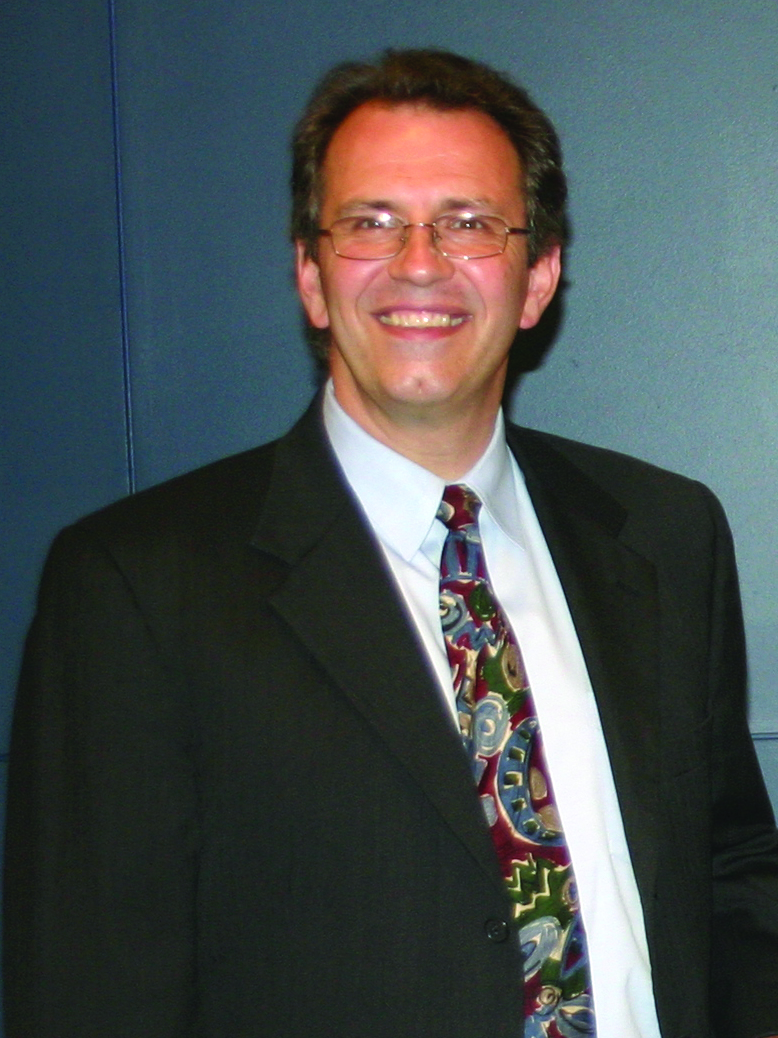 André Boehman Recognized for Paper on Diesel Engine Research
André Boehman Recognized for Paper on Diesel Engine Research
André Boehman, professor of Fuel Science, Energy and Mineral Engineering, was chosen to receive the 2009 SAE John Johnson Award for Outstanding Research in Diesel Engines in recognition of a paper he co-authored, “An Experimental Investigation of the Origin of Increased NOx Emissions when Fueling a Heavy-Duty Compression-Ignition Engine with Soy Biodiesel.” The paper was published in the October 2009 issue of SAE International Journal of Fuels and Lubricants. SAE International presented him with the award on April 13.
This award was established in 2008 with a contribution from Dr. John H. Johnson, an expert in the field of diesel engines, to recognize the author(s) of an outstanding technical paper presented at an SAE meeting. The paper must address research advancements in diesel engines in the on-or off -road industries.
The paper’s lead author was Charles J. Mueller, Sandia National Laboratories. Co-authors included André Boehman, Penn State, and Glen C. Martin, Sandia National Laboratories.
Chunshan Song Wins the 2010 Henry H. Storch Award in Fuel Chemistry from ACS
Chunshan Song, Distinguished Professor of Fuel Science in the Department of Energy and Mineral Engineering and Director of EMS Energy Institute at Penn State, was selected to receive the Henry H. Storch Award in Fuel Chemistry at the American Chemical Society (ACS) Spring 2010 National Meeting held in March 2010. He received this prestigious award in recognition of his outstanding contributions to fuel science especially in the areas of clean fuels, catalysis, and CO2 capture and conversion research.
The Henry H. Storch Award, co-sponsored by the Division of Fuel Chemistry of the ACS and Elsevier Ltd., is given annually to recognize an individual in the field of fuel science for an exceptional contribution to research on the chemistry and utilization of hydrocarbon fuels. Special consideration is given to innovation and novelty in the use of fuels, characterization of fuels, and advances in fuel chemistry that benefit the public welfare or the environment. The award is the highest honor for research awarded by the ACS Fuel Chemistry Division.
Song was recently named a Distinguished Professor of Fuel Science by Penn State’s Office of the President. He is also professor of Chemical Engineering and associate director of the Penn State Institutes of Energy and the Environment. He received a bachelor’s degree in chemical engineering in 1982 from Dalian University of Technology, China, and a master’s degree in 1986 and Ph.D. in 1989 in applied chemistry from Osaka University, Japan. He worked at the Research Center of Osaka Gas Company in Japan prior to joining Penn State in November 1989.
Song is internationally recognized for his original and innovative contributions to his field. His early research at Penn State on catalytic coal liquefaction and the effects of drying on coal conversion at low temperatures led to a new method for preparing highly active dispersed catalysts using a water and sulfide precursor. Based on this discovery, further fundamental studies using probe molecules resulted in two patents licensed to industry for inventions related to nano-sized ultra-high-surface metal sulfide catalysts. From his efforts to make better use of coal-derived aromatics for value-added chemicals, he designed shape-selective alkylation catalysts for synthesis of precursors for advanced polymers and engineering materials from naphthalene, which have also been patented and licensed to industry.
He has made major contributions to the development of coal-based advanced thermally stable jet fuels through his work on fundamental chemistry concerning the effects of intrinsic fuel composition and structure on thermal degradation of jet fuels, and his work on model compounds studies related to stable bicyclic structures and hydroaromatics and their tailored production through catalysis. ese developments were part of the large, 20 year, U.S. government-funded jet fuel project led by Harold Schobert at Penn State, which has been scaled up to pilot plant production.
For ultra-clean fuels and fuel cells, Song and his group devised an innovative approach to selective adsorption for removing sulfur from liquid hydrocarbon fuels over solid surface without using hydrogen. is approach has been licensed to industry as well and is already used for making prototype systems.
Song’s group recently developed a novel approach to CO2 capture by “molecular-basket sorbents” consisting of nanoporous matrix and functional polymers with superior capacity and selectivity. In addition, his group developed sulfur-tolerant and carbon-resistant bimetallic and trimetallic catalysts for low-temperature steam reforming of liquid fuels and non-pyrophoric catalysts for oxygen-assisted water gas shift. He recently proposed a new design concept of sulfur-tolerant noble metal catalysts for low-temperature hydrotreating and dearomatization for ultra clean fuels.
A Storch Award Symposium in Honor of Chunshan Song will be held at ACS Fall 2010 National Meeting in Boston during August 22-26, 2010.

